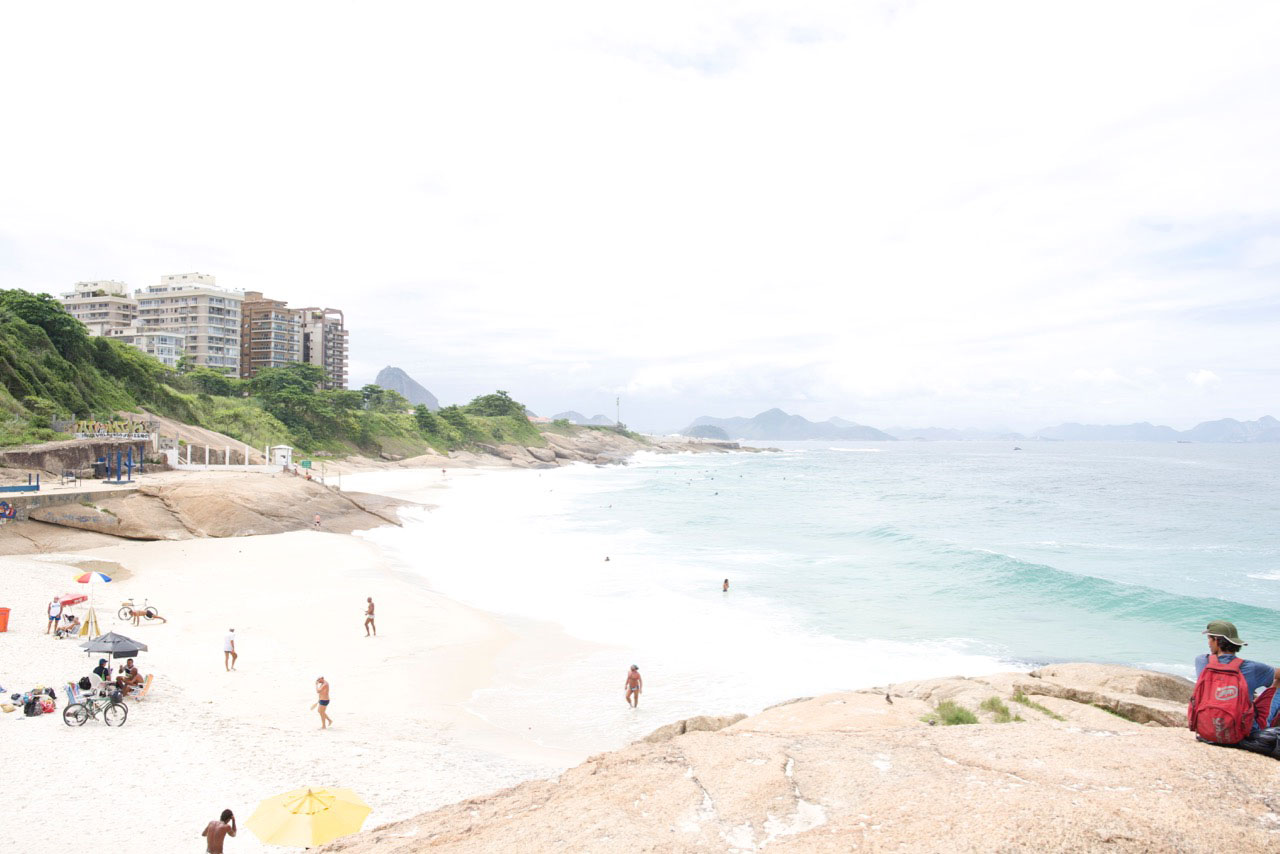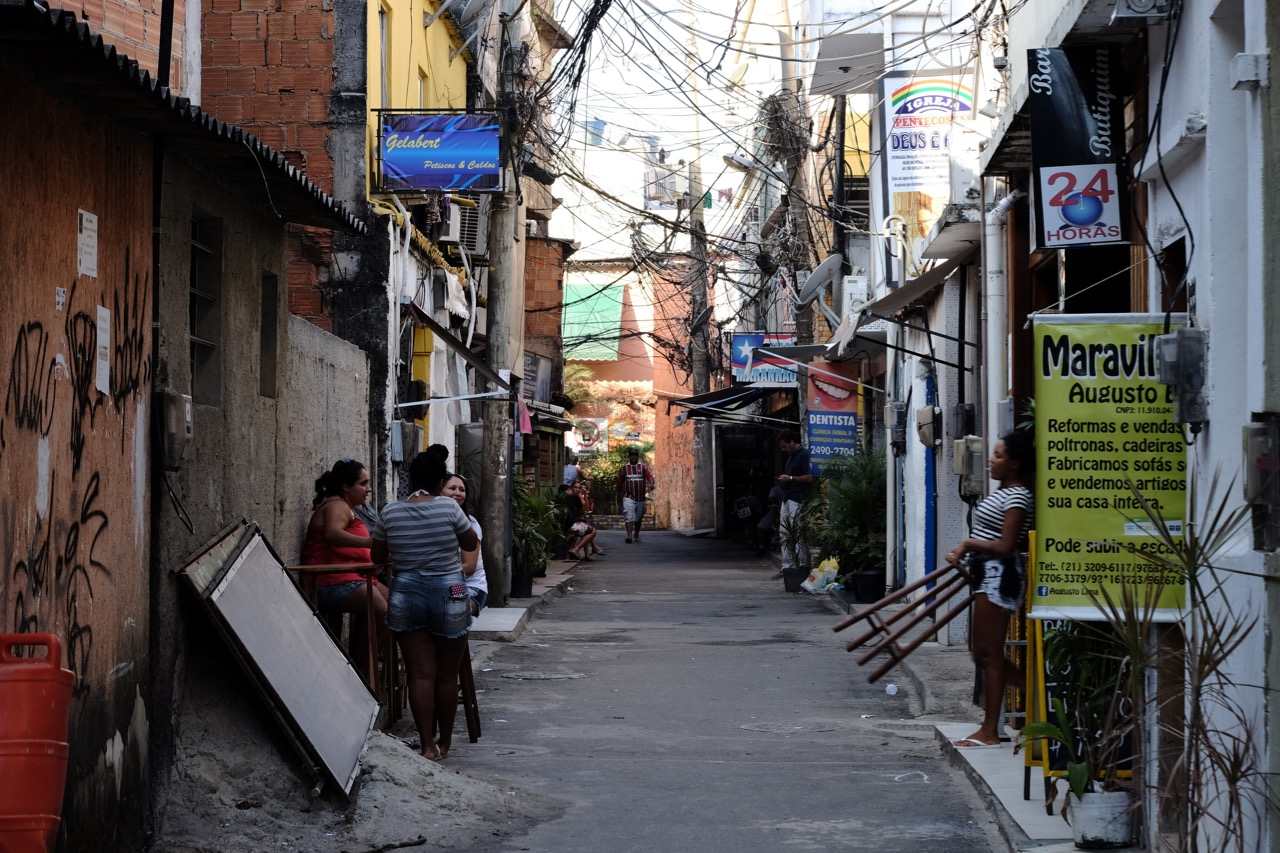Photo: CC BY-SA 3.0 / Breogan67
Quantum Physics and Surfing
Junior Scientist from Cologne becomes Professor
Interview with Professor Micklitz, physics professor at the Brazilian Center for Research in Physics in Rio de Janeiro. Professor Micklitz spoke to Martina Markus.
Let’s start with a look at your background. You studied physics at the University of Cologne, where you also did your doctorate. Now you live with your family in Rio de Janeiro and are a researcher at the CBPF (Brazilian Center for Research in Physics).
That’s right. After I finished my doctorate in Cologne, I went to the Argonne National Laboratory as a postdoc for two years and then I moved to Freie Universität Berlin, where I worked as a research assistant. Having spent about three years in Berlin, we felt it was time to find a permanent position and that’s how my family ended up in Rio, with a slight detour via Chicago and Berlin.
Was physics what you always dreamed of studying? And why did you study it at the University of Cologne?
Initially, no. Although I always really enjoyed maths, I actually started studying Latin American Regional Studies first. At the beginning, I liked the variety the programme offered but the economics courses led me to develop more of an interest in maths and then physics. I think the term I spent at the Federal University of Ceará was one of the things that prompted me to change programme. I had some friends there who loved studying maths and physics and I found it very helpful to reflect on my interests and my studies so far in my new surroundings there. When I returned to Cologne, I decided to sit in on some maths and physics lectures for a term and then it quickly became clear that that was what I really wanted to study.
Was Brazil a place you had always dreamed of living? Why did it appeal?
It definitely was in my childhood and adolescence. Our trips to Rio were exciting and I was down at the beach surfing whenever I could. Over time, of course, you see the issues the city has and the restrictions they bring. But I had many good memories of Rio so it was always a very special place for me. Whilst I was doing my doctorate I met my wife, whose family come from Rio, so there are family ties here as well.
Rio de Janeiro is considered a beautiful city – vibrant and sexy. How would you describe the atmosphere there?
That’s not an easy question to answer because Rio is full of different realities. The combination of sea, mountains and forest never fails to impress me. And if you’re privileged enough to live in the South Zone, the beach and all the clichés that go with it play a major role.
Despite its charm and its beauty, Rio has its dark sides too. Do you feel the crime situation restricts you in any way at the CBPF or in your everyday life?
Our day-to-day lives revolve around our home, nursery, my wife’s workplace, the CBPF and the sea, which are all only just a few kilometres apart and in very quiet districts of the city. As a result, we don’t feel very restricted. We don’t have to travel by bus late at night, for example. But people who live in other parts of the city and take several hours to get to work would almost definitely have a different story to tell.
What is your main area of research? And does the CBPF collaborate with the University of Cologne at all?
My research area is theoretical solid-state physics. At the moment, I’m interested in the factors that cause isolated quantum systems to achieve a thermal balance. The statistical physics taught to students assumes that particle interaction always results in a state of thermal balance. Surprisingly, however, it has become evident that that is not always necessarily the case and that the presence of disorder can prevent such balance being achieved. This phenomenon is caused by the wave nature of quantum mechanical particles and we’re currently working on a research project with the University of Cologne to explore the conditions required for and the consequences of what is known as “many-body localisation”.
Are there any cultural differences that surprised you in the way that research is done?
At the risk of generalising, I do have to answer that with a “yes”. I would say Brazilians tend to avoid conflict rather than embrace it. That’s probably the only way to do things if you think about the explosive social situations facing some of the country’s towns and cities. And I think that approach is reflected in various aspects of research work, e.g. in thesis defences or scientific debate. Whilst I do value this tendency very much in general communication, sometimes I’d like to see a certain level of argumentativeness in the research sphere as it can actually be a help.
The CBPF is not far from the famous Copacabana and Ipanema beaches. So what’s it like being a researcher in Rio? Do you get much time to go surfing?
Not enough, unfortunately! But that’s more to do with our little boy. I hope he’ll be able to swim soon. As for my research work, my daily routine is not much different to what it was in Berlin. The CBPF could perhaps be seen as similar to a Max-Planck Institute in Germany. Apart from conducting research, we supervise master students and doctoral candidates as well as giving advanced lectures and seminars. Although professors at the CBPF don’t have to teach, I’ve actually always thoroughly enjoyed teaching so I try to contribute to the Center’s activities in that area too. Having said all that, yes, I do keep an eye on the waves every day and when they look great I try to arrange some time out for a quick surf.
Have you got any tips for young students who’d like to research abroad?
To generalise based on my own experience – if you’re not sure about the programme you’ve chosen, I’d recommend you study abroad for a term. The change of scene is really helpful. And another general tip, perhaps obvious, would be to focus on the research aspect and the academic environment when choosing where to go and not let the city or the country have too much of an influence on your decision.

